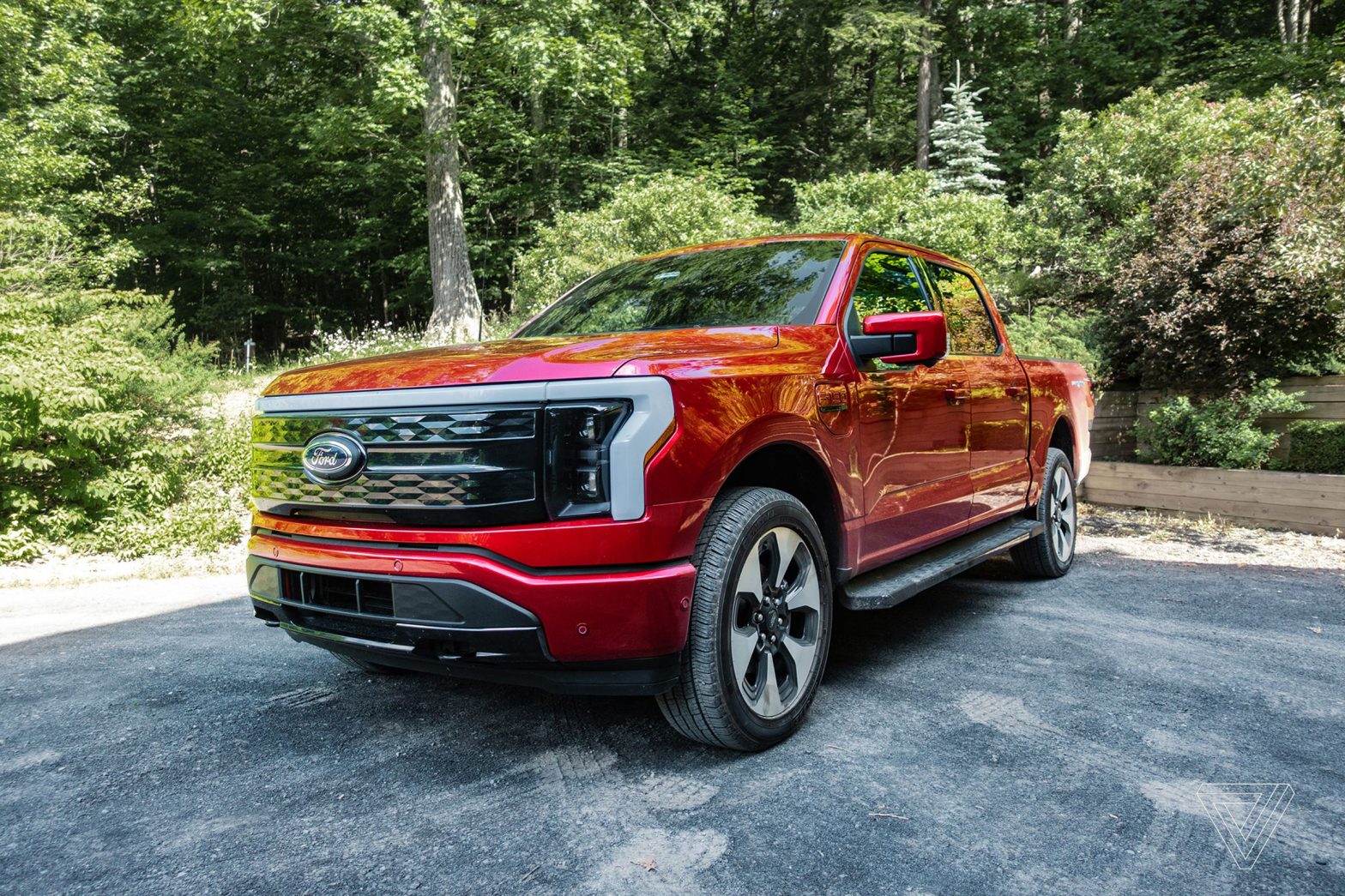/
The automaker has only recalled 18 trucks after concluding its weeks-long investigation into a battery defect that caused at least one fire.
:format(webp)/cdn.vox-cdn.com/uploads/chorus_asset/file/23763410/npatel_220626_5328_0006.jpg)
Ford issued a recall notice for 18 F-150 Lightning pickup trucks with defective battery cells, which caused at least one truck to catch fire. The automaker will restart production of the electric truck on Monday, March 13th, with a “clean stock” of battery packs, after a four-week pause of production and shipment to investigate the cause of the defect.
Ford said the “root cause” of the issue was at South Korean battery supplier SK On’s factory in Georgia. In a statement, spokesperson Emma Bergg said that the company was not aware of any reports of accident or injury related to this recall.
“Together with SK On, we have confirmed the root causes and have implemented quality actions,” Bergg said. “Production is on track to resume Monday with clean stock of battery packs.”
The affected vehicles are either on dealer lots or in customer hands, Bergg confirmed. The automaker has been in close contact with the National Highway Traffic Safety Administration, which is expected to publish the recall notice next week.
Ford abruptly halted production of its flagship electric pickup on February 4th after one of the trucks caught fire in a holding lot affiliated with its Dearborn, Michigan, factory and spread to two other vehicles. SK On previously described the defect as “rare” and said it was working on a fix.
The F-150 Lightning is the latest EV to get hit with a recall. Ford previously issued a recall last year for 49,000 Mustang Mach-E SUVs over concerns that a safety defect could render the vehicle immobile. BMW issued a recall for a “small number” of 2022 i4 sedans and iX SUVs due to the risk of battery fires. The Toyota bZ4X was recalled when it was discovered that loose hub bolts could cause the wheels to become detached while driving. Other EVs have also been recalled over various software bugs and other minor issues.
Battery fires, while rare, remain a serious concern for EV makers. More data is needed, but researchers have determined that the vast majority of EVs are at low risk for battery fires. Though, when fires do occur, EVs with lithium-ion batteries burn hotter, faster, and require more water to extinguish — a fact that has led some towns to retrain their emergency responders for when such incidents occur.
The most serious incident involved the Chevy Bolt, which was recalled after GM reported at least 19 battery fires due to defective cells from the supplier LG. The automaker was forced to temporarily shut down production after a software fix failed to prevent several more fires. Chevy resumed production last year after installing new battery packs.
